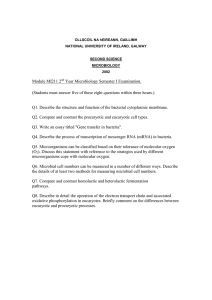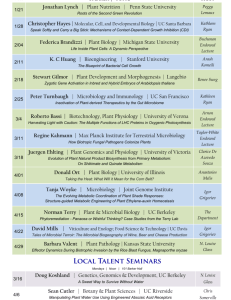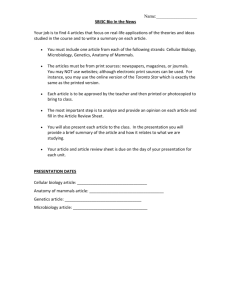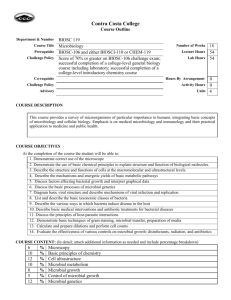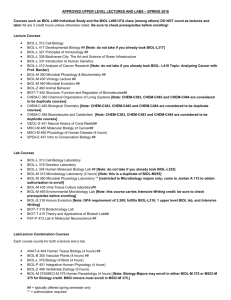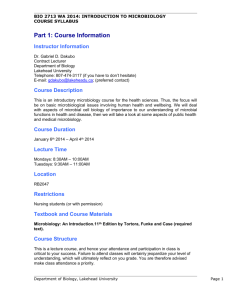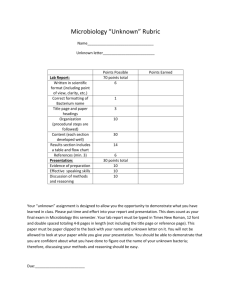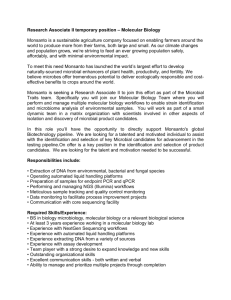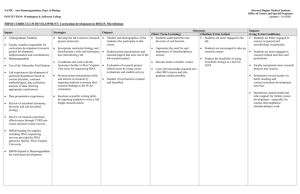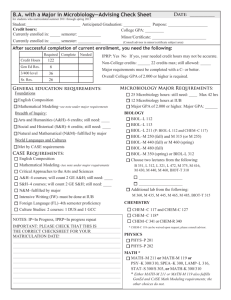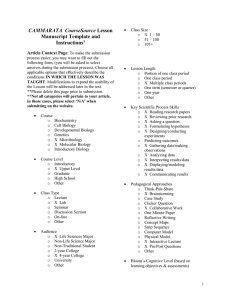BIOL 220: Microbiology for Health Professionals Dr. Elliott
advertisement
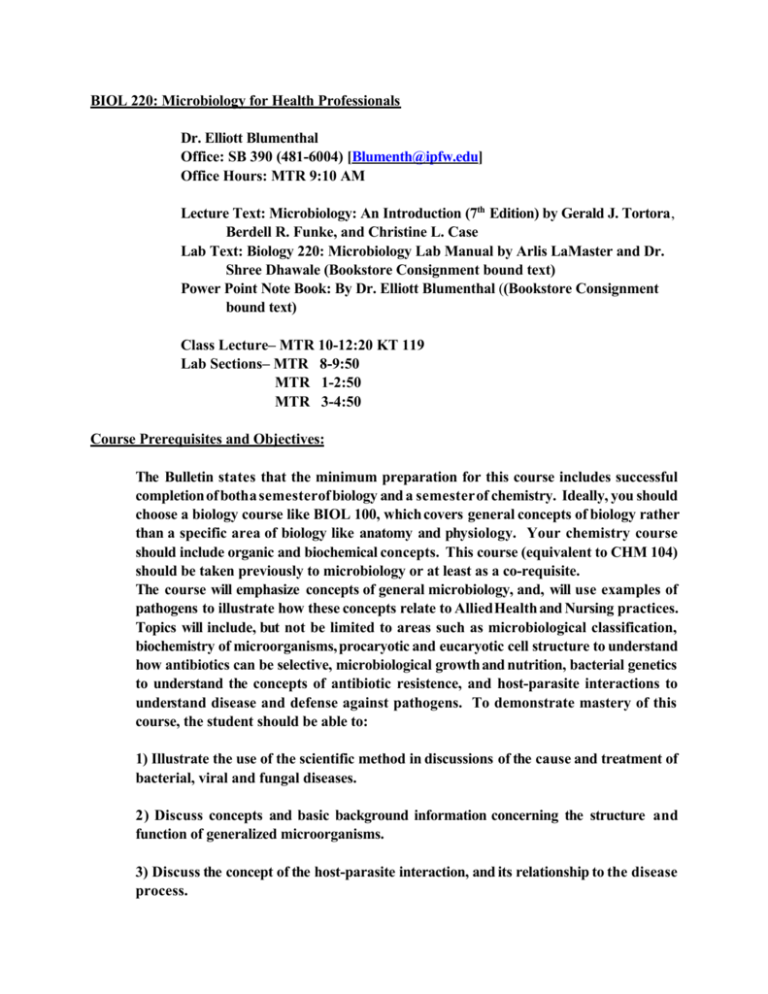
BIOL 220: Microbiology for Health Professionals Dr. Elliott Blumenthal Office: SB 390 (481-6004) [Blumenth@ipfw.edu] Office Hours: MTR 9:10 AM Lecture Text: Microbiology: An Introduction (7th Edition) by Gerald J. Tortora, Berdell R. Funke, and Christine L. Case Lab Text: Biology 220: Microbiology Lab Manual by Arlis LaMaster and Dr. Shree Dhawale (Bookstore Consignment bound text) Power Point Note Book: By Dr. Elliott Blumenthal ((Bookstore Consignment bound text) Class Lecture– MTR 10-12:20 KT 119 Lab Sections– MTR 8-9:50 MTR 1-2:50 MTR 3-4:50 Course Prerequisites and Objectives: The Bulletin states that the minimum preparation for this course includes successful completion of both a semesterof biology and a semester of chemistry. Ideally, you should choose a biology course like BIOL 100, which covers general concepts of biology rather than a specific area of biology like anatomy and physiology. Your chemistry course should include organic and biochemical concepts. This course (equivalent to CHM 104) should be taken previously to microbiology or at least as a co-requisite. The course will emphasize concepts of general microbiology, and, will use examples of pathogens to illustrate how these concepts relate to Allied Health and Nursing practices. Topics will include, but not be limited to areas such as microbiological classification, biochemistry of microorganisms, procaryotic and eucaryotic cell structure to understand how antibiotics can be selective, microbiological growth and nutrition, bacterial genetics to understand the concepts of antibiotic resistence, and host-parasite interactions to understand disease and defense against pathogens. To demonstrate mastery of this course, the student should be able to: 1) Illustrate the use of the scientific method in discussions of the cause and treatment of bacterial, viral and fungal diseases. 2) Discuss concepts and basic background information concerning the structure and function of generalized microorganisms. 3) Discuss the concept of the host-parasite interaction, and its relationship to the disease process. 4) Describe both the host’s and microbe’s defense mechanisms that are in competition during the disease process. 5) Discuss control measures that can be applied against the microbes both in the environment and in (on) the body. 6) Gain and understanding and appreciation of common laboratory techniques used to study microbes in the clinical setting. ___________________________________________________________________________ Grading: 4 Lecture Exams (including Final) 400 points Laboratory Notebook 20 points Identification of bacterial unknowns 30 points Mastery of techniques (streak & gram stain) 10 points Five Laboratory Quizzes (best 4/5) 40 points Comprehensive Lab Exam 50 points Class participation and attendance 10 points __________________________________________________________________________ Total Class points 560 points Grading Scale A = 90% (504 points) B = 80% (448 points) C = 70% (392 points) D = 60% (336 points) F < 60% (<336 points) ___________________________________________________________________________ Lecture and Lab Attendance: Lecture– The summer course is highly intense and compact. It is STRONGLY recommended that you attend all class sessions. The exam material with come from both lecture and text, but explanations during class time are critical for a full understanding of the material. Make sure that you complete your reading assignment before the class lecture so that the terms and concepts have been seen/heard, It is much easier to learn in this manner. Missed exams will be impossible to make up. During the summer an exam will be given at the beginning of class and lecture will follow. Lab– Lab attendance is compulsory. Any excused absences must be known prior to the day of the lab. Labs are not possible to make up. More than two unexcused absences will result in the lowering of your CLASS grade by one letter. Students are also expected to read the daily lab exercise before class so that an extensive review is not necessary and the required preparations can be completed within the time allotted. Lecture Schedule BIOL 220 Summer Session I, 2003 Date Topic Chapter in Tortora May 19 May 20 May 22 Introduction & History Classification & Chemistry No Lecture (there will be Lab) Chapter 1 Chapter 10, 11, 12 & Chapter 2 May 26 May 27 May 29 Chemistry & Procaryotic Structure Procaryotic and Eucaryotic Cell Structure Exam # 1 and Microbial Metabolism Chapter 2 & Chapter 4 Chapter 4 Chapter 5 June 2 June 3 June 5 Microbial Growth and Nutrition Microbial Genetics & Biotechnology Microbial Genetics and Biotechnology Chapter 6, 7 Chapter 8, 9 Chapter 8, 9 June 9 June 10 June 12 Exam # 2 and Viruses Host Parasite Interactions The Immune Response of Host Chapter 13 Chapter 14, 15, 16 Chapter 17, 18 June 16 June 17 June 19 Antimicrobial Drugs Exam # 3 and Diseases of Skin and Eyes Diseases of the Cardiovascular, Lymphatic and Respiratory systems Chapter 20 Chapter 21, 22 Chapter 23, 24 June 23 Diseases of the Digestive, Reproductive and Urinary systems Review and catch-up Final Exam Chapter 25, 26 June 24 June 26
